
Rude Woman Receives Nothing But Pranks On Halloween After Her Ignorant Actions Have Consequences
Trick-or-treating is supposed to be a great bit of fun, from the costumes to the abundance of candy for the kids to enjoy later. It’s also a great way to build a sense of community, as people visit their neighbors, interact, and just have a good time.
But one mom ended up having to blacklist a house in her neighborhood because the people there refused to give her autistic child any candy. This quickly spiraled into drama, as the neighbors attempted to retaliate. People discussed ableism and what it means to be a good neighbor while giving OP some advice.
Going trick-or-treating should be a magical time for children
Image credits: Charles Parker (not the actual photo)
But a mom discovered that one house would simply not give her autistic daughter any candy
Image credits: Anton Rudyk (not the actual photo)
Image credits: u/halloweengoodiebags
Ableism is cruel, misguided, and ugly
Image credits: Liza Summer (not the actual photo)
While we have no way of knowing exactly why these neighbors refused to give candy to specifically an autistic child, their actions do follow pretty standard definitions of ableism. To those who are not familiar with the concept, congratulations, but simply put, it means to discriminate against someone for a physical or mental disability.
As horrible as it sounds, for much of human history, people with disabilities have been regularly and systematically excluded from society. In the United States, where material conditions were relatively better, ableism was only legally defined in the 1970s. Up until then, people could exclude the disabled from public life, if they so choose. Some locations even had horrible “ugly laws” which actually prohibited some people with disabilities from showing themselves in public.
Researchers believe that ableism comes from a variety of factors. Firstly, people who grow up in environments where they are not taught to treat the disabled as fully-fledged human beings will often see them as lesser than themselves. This may stem from old-fashioned beliefs about Darwinism and misguided ideals regarding who “deserves” to live.
Ableism and entitlement often go hand in hand
Image credits: Kristina Paukshtite (not the actual photo)
While trick-or-treating isn’t defined by law, meaning that these neighbors could choose to exclude OP’s daughter, their actions are antithetical to the entire idea of a community. Instead of doing something nice, they refused to back down over a technicality, ruining their reputation in the long run. It’s actually hard to imagine a good reason not to give a six-year-old a candy bar when you have her sibling’s ones right before.
As often happens with horrible, entitled folks, the neighbors seem to be trying to do some damage control and claiming the whole thing is blown out of proportion. This is a classic strategy of bigots who do at least realize that the majority of the population does not at all support their beliefs. As a result, they have to turn to excuses and obfuscation.
Neurodivergency is more common than many people might expect
Image credits: Yaroslav Shuraev (not the actual photo)
Regardless of what these neighbors believe, neurodiversity is quite common. Researchers believe that at least 15-20% of the human population is neurodivergent to some level, with the real number likely being a lot higher. After all, it’s pretty hard to measure, hard to self-diagnose, and hard to spot in the “wild” except in extreme cases.
As many of the comments noted, there is no reason for these neighbors to act the way they do. There was not a scarcity of candy, demanding that every single child repeat a phrase is just demeaning, and their refusal to accept OP’s explanation is, ironically, quite small-minded. An adult being cruel to a six-year-old is without a doubt something that needs to be called out.
Readers thought the neighbor’s behavior was shocking
Halloween isn't as widely celebrated in France as it is in the US, and the children are supposed to say "des bonbons ou un sort" (essentially, "trick or treat"). The children come around town to shops for the most part, instead of to houses. I sat outside one of our local bars this week and the bartender would hold up his big box of candies and prompt children to say "des bonbons ou un sort" (trick or treat), but if they didn't he would gently smile and let them say "Un bonbon" (a piece of candy) or "Merci" (thank you) or "S'il te plaît" (please) and give them a piece of candy regardless. And if they were just too shy, he would give them a piece anyway. This woman in this article treats children like misbehaving pet monkeys (and I would call animal welfare on her if she had a pet).
We don't know if the story took place in the US. Halloween is also celebrated in Canada and in many parts of the UK.
Load More Replies...One year a family moved into my neigbourhood from Turkey. The kids (twins) were friendly with mine so I took them around for their very first Hallowe'en. Some neighbours refused to give them candy because they had no costume and didn't know the rhyme, being barely able to speak English. They had been so excited to go out, and this really upset them. They couldn't understand why other kids were getting candy, but they were not. I tried to explain, but they would not listen. Still sad about that, it was less about the candy than being made to feel different and rejected, their first time out in a new country.
Why didn’t you teach them, phonetically, to say “trick or treat”? Please don’t take this as aggressive, I’m just intrigued as to the reason.
Load More Replies...I don't care who you are, what you say or don't say, whether or not you have a costume, how old you are, you get candy. Halloween is my favorite holiday and imma share it with EVERYONE!
13f here- I still trick or treat, and I know seniors who would rather trick or treat than go to a party
Load More Replies...Halloween isn't as widely celebrated in France as it is in the US, and the children are supposed to say "des bonbons ou un sort" (essentially, "trick or treat"). The children come around town to shops for the most part, instead of to houses. I sat outside one of our local bars this week and the bartender would hold up his big box of candies and prompt children to say "des bonbons ou un sort" (trick or treat), but if they didn't he would gently smile and let them say "Un bonbon" (a piece of candy) or "Merci" (thank you) or "S'il te plaît" (please) and give them a piece of candy regardless. And if they were just too shy, he would give them a piece anyway. This woman in this article treats children like misbehaving pet monkeys (and I would call animal welfare on her if she had a pet).
We don't know if the story took place in the US. Halloween is also celebrated in Canada and in many parts of the UK.
Load More Replies...One year a family moved into my neigbourhood from Turkey. The kids (twins) were friendly with mine so I took them around for their very first Hallowe'en. Some neighbours refused to give them candy because they had no costume and didn't know the rhyme, being barely able to speak English. They had been so excited to go out, and this really upset them. They couldn't understand why other kids were getting candy, but they were not. I tried to explain, but they would not listen. Still sad about that, it was less about the candy than being made to feel different and rejected, their first time out in a new country.
Why didn’t you teach them, phonetically, to say “trick or treat”? Please don’t take this as aggressive, I’m just intrigued as to the reason.
Load More Replies...I don't care who you are, what you say or don't say, whether or not you have a costume, how old you are, you get candy. Halloween is my favorite holiday and imma share it with EVERYONE!
13f here- I still trick or treat, and I know seniors who would rather trick or treat than go to a party
Load More Replies...
 Dark Mode
Dark Mode 

 No fees, cancel anytime
No fees, cancel anytime 






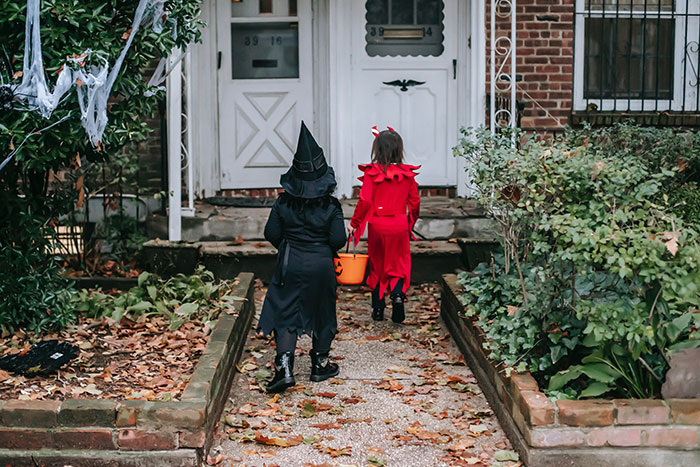
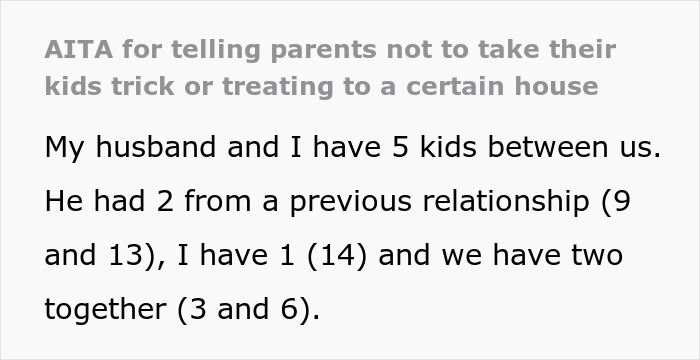



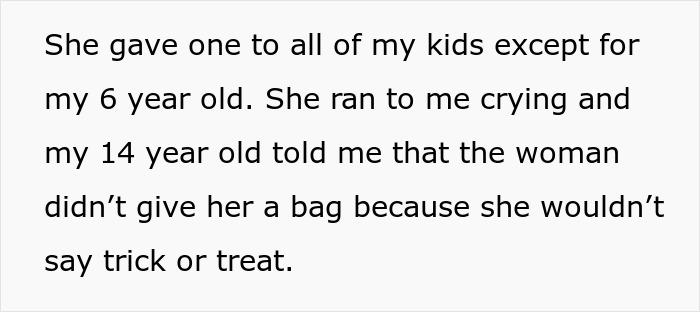
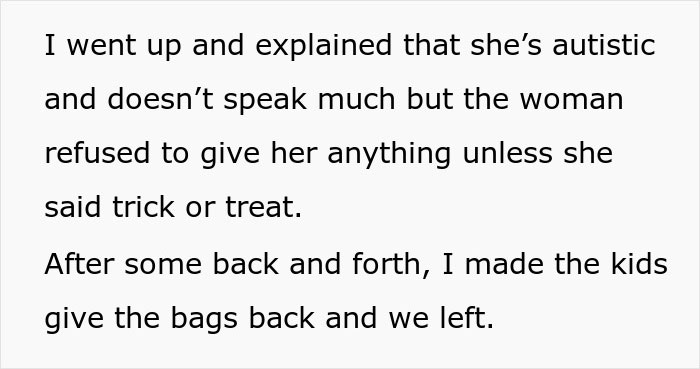
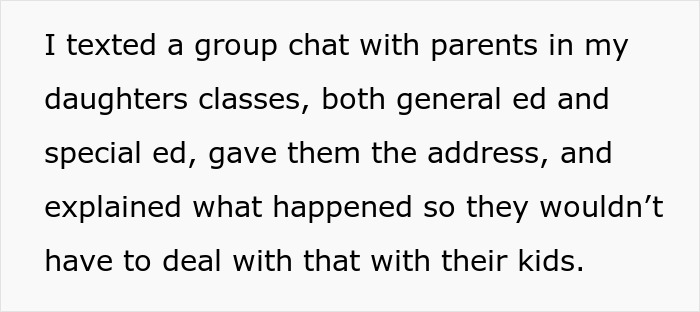


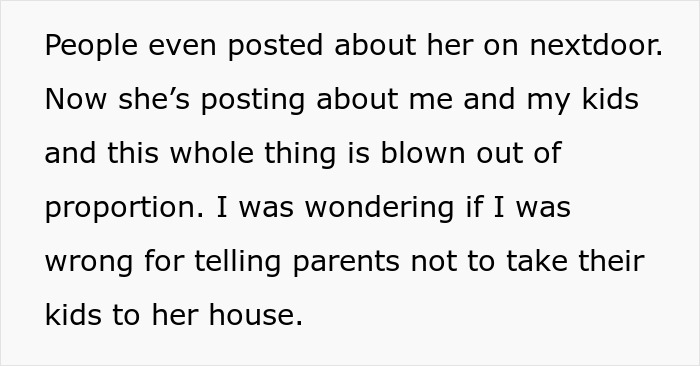

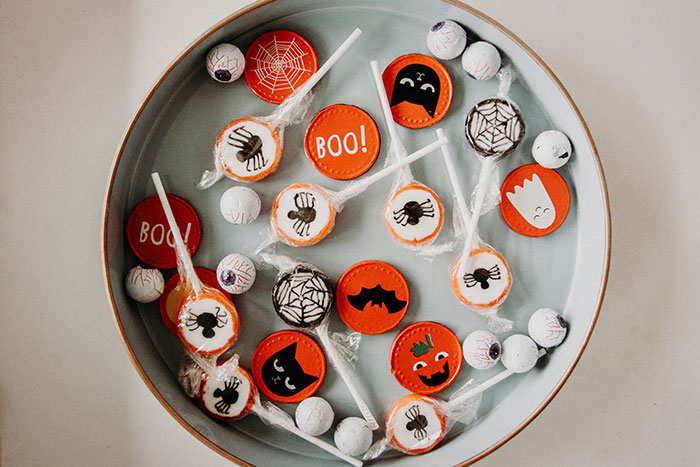

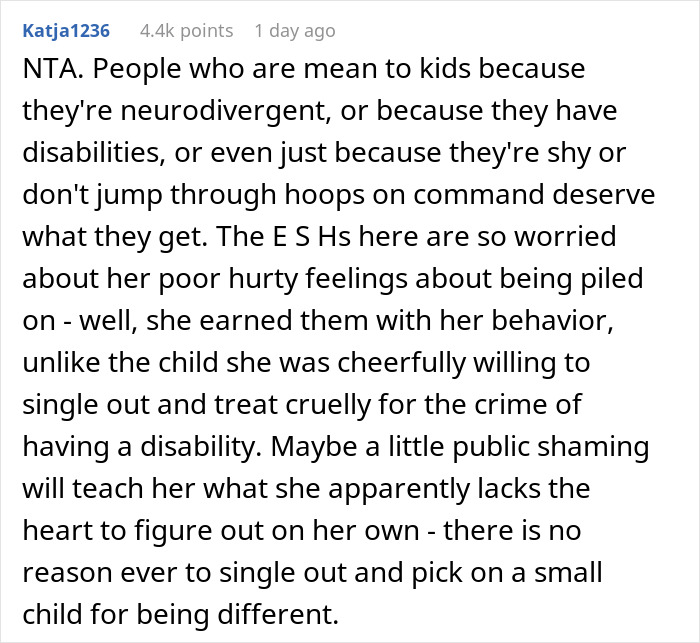
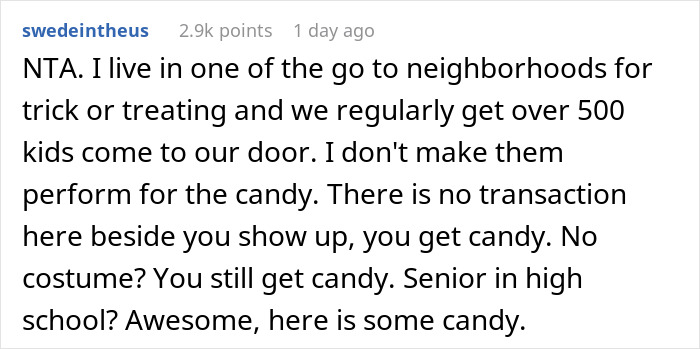
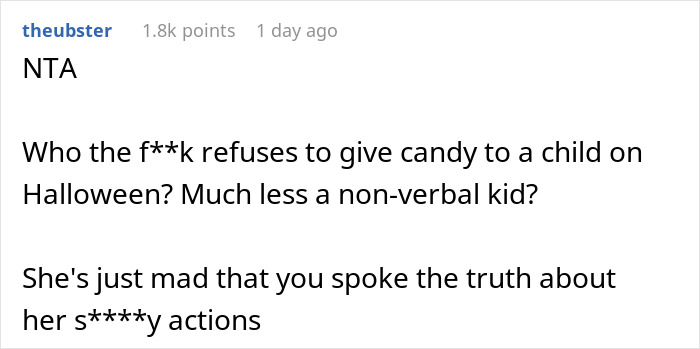
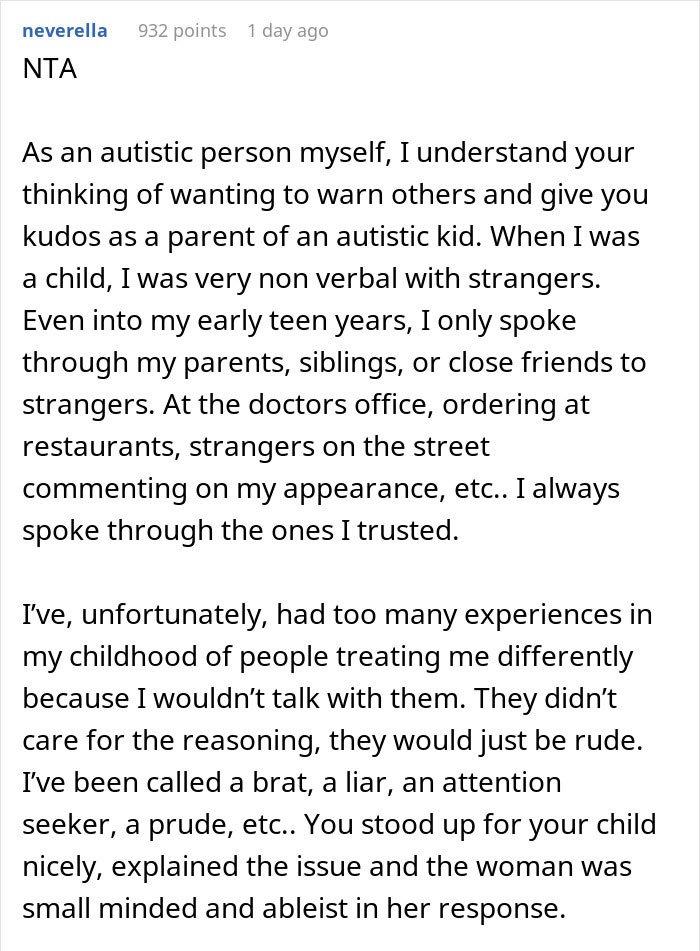
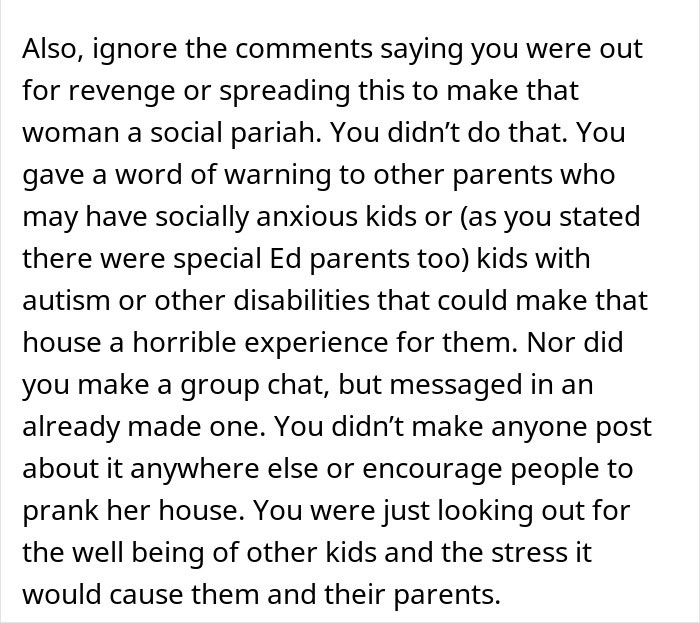
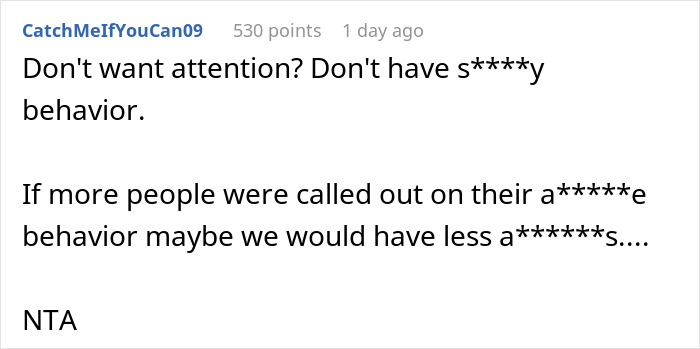
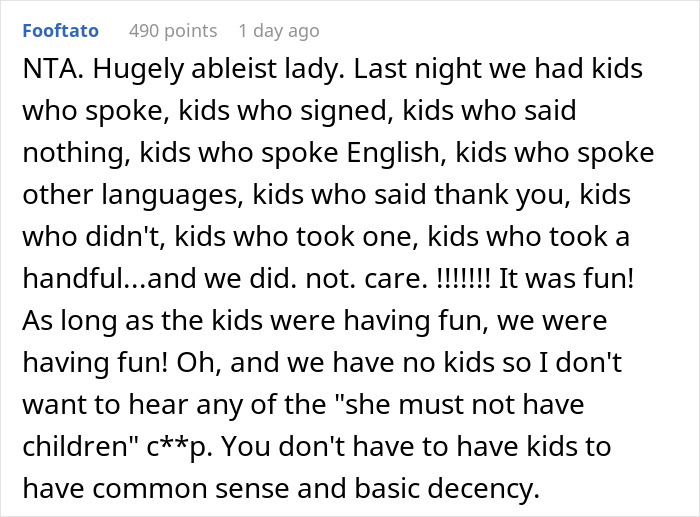
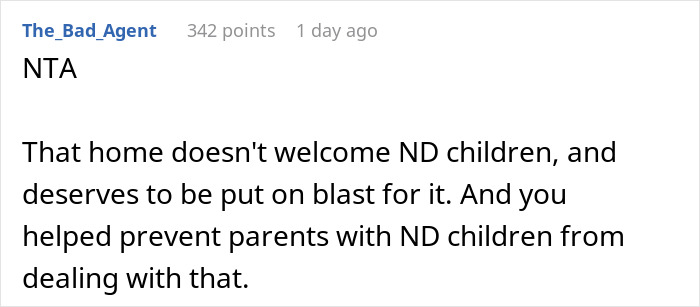


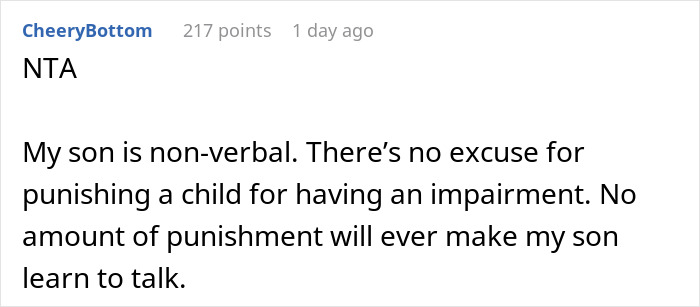
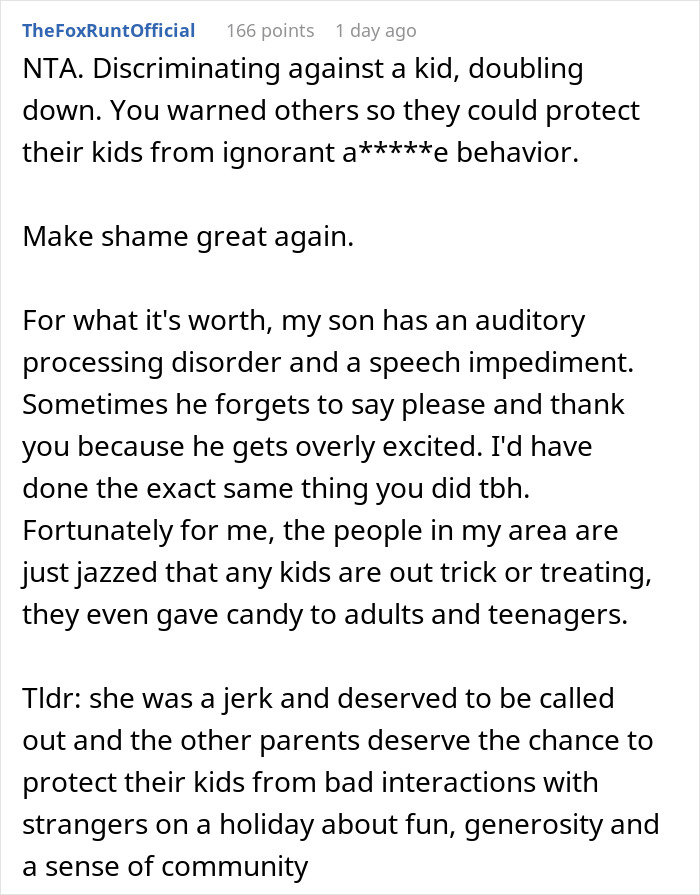
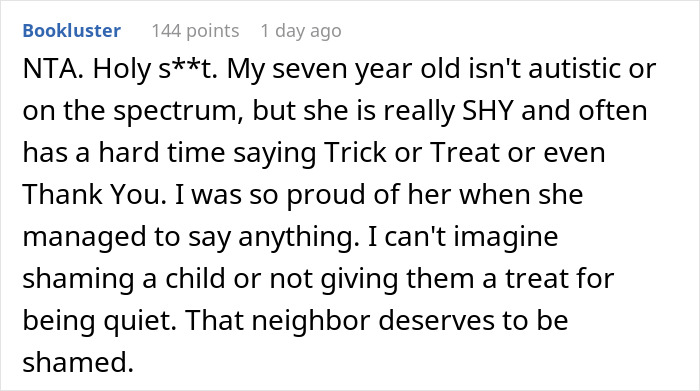
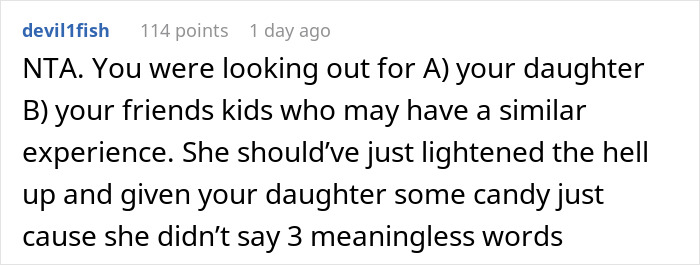


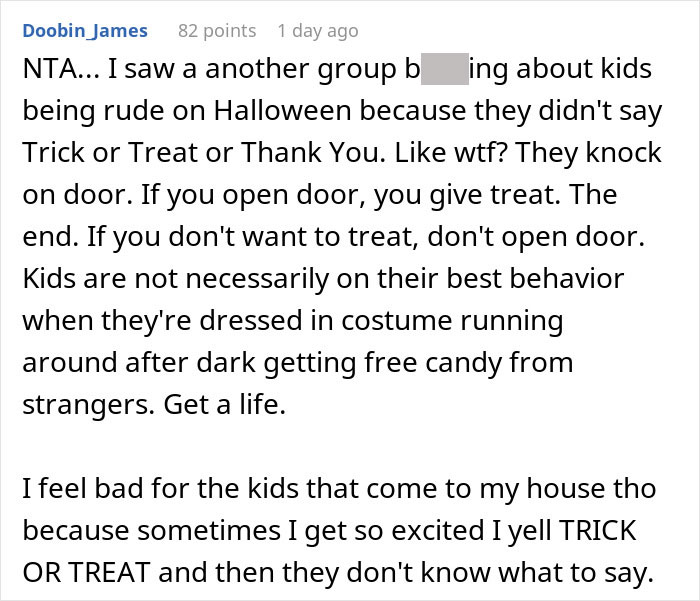
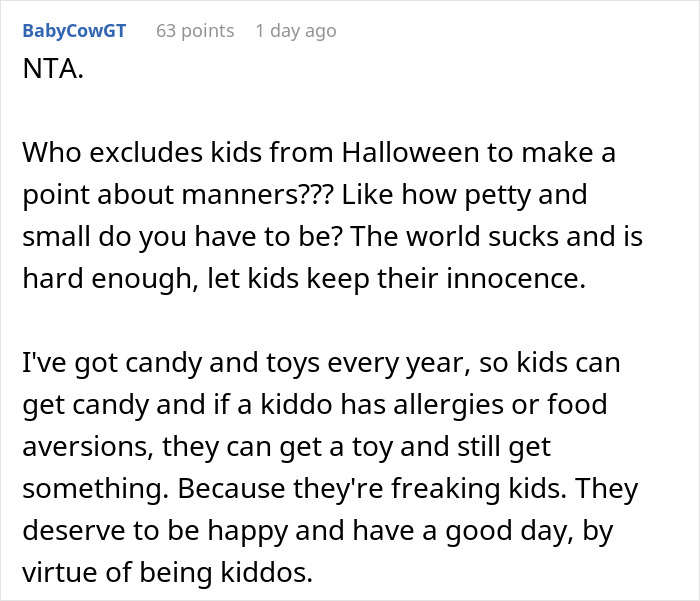
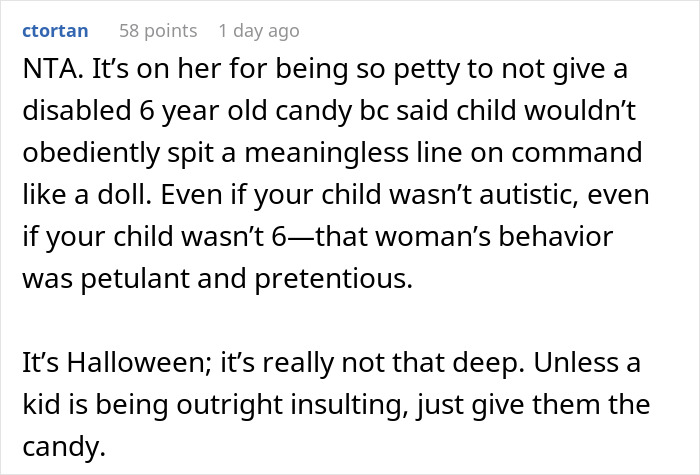












































77
32